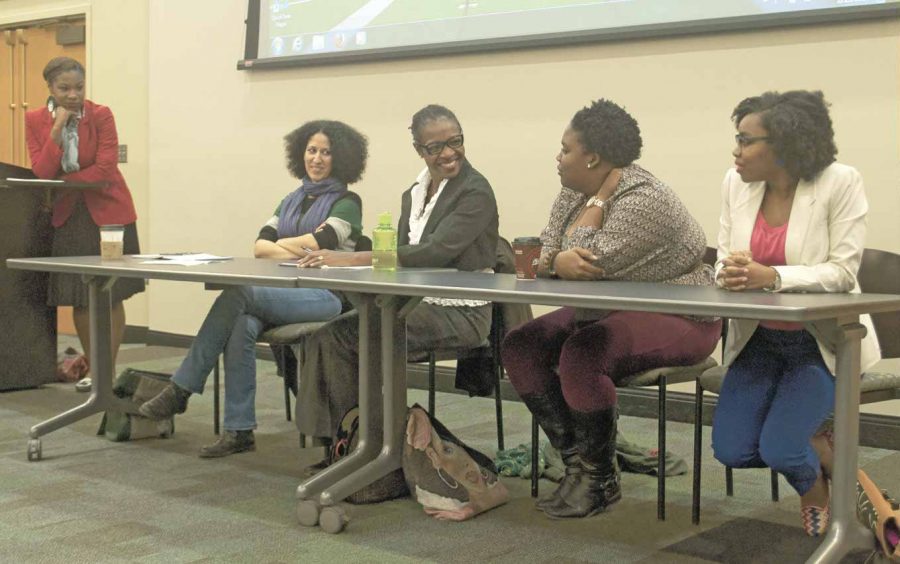Elizabeth Rogers, a junior majoring in African-American studies, sat at table with four black women who said they proudly wore their natural hair. She described a situation where she was criticized for not altering her hair to align with social expectations.
“I was shocked that my hair in its natural state was such a big issue,” Rogers said.
The event, part of a series of events celebrating Black History Month, featured a panel of both students and teachers. The program, entitled “Defining Myself for Myself: Perceptions of Black Femininities,” was sponsored by the Women’s Resource Center and addressed the idea of black femininity and what it means to be a black female in America.
(See also “Panel discusses definition of black masculinities“)
Rogers said the idea that black women can be judged because their outward appearance doesn’t match certain expectations from society was an example of how black women are often marginalized and scrutinized for being themselves. Despite this, however, the panelists encouraged black women to be themselves and not to conform to society’s norms simply due to a fear of backlash.
“Assimilating can be a method of survival,” said Gabrielle Smith, a fourth-year doctoral student in psychology and a first-year graduate student in gender and race studies. “But your strength comes from being comfortable with who you are.”
Smith said black women are often typecast in media according to one of two stereotypes: Either they are hyper-sexualized figures or portrayed as the strong, dominant matriarch. The forum focused on how individuals should not be defined according to the stereotypes assigned to them because of their skin color.
“There is no monolithic black female identity,” Smith said. “Individuals should embrace their identity outside of stereotypes. You can’t have someone define who you are.”
(See also “Black History Month events highlight impact“)
Kiara Hill, a second-year graduate student in gender and race studies, moderated the event. Hill explained that more often than not, black females tend to lend themselves to these stereotypes because it is what is expected of them in society. She said it is important for black women to realize that they can be whoever they want to be, and that they shouldn’t let perceptions define who they are as an individual.
“We are taught to hate ourselves,” Hill said, “So declaring that you love yourself is a revolutionary act in America.”
Eric Patterson, education and awareness coordinator for the Women’s Resource Center, said the discussion presented a very relevant topic in today’s society because it is important for black women to understand that they are individuals and are not defined by others’ perceptions of them.
“This forum is important because it shows that people are multifaceted,” Patterson said.
(See also “Black History Month should raise questions about race“)









